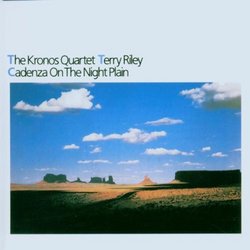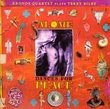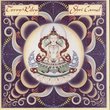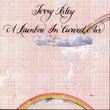| All Artists: Terry Riley, Kronos Quartet Title: Terry Riley: Cadenza on the Night Plain Members Wishing: 4 Total Copies: 0 Label: Hannibal Original Release Date: 1/1/2006 Re-Release Date: 1/31/2006 Genres: New Age, Rock, Classical Styles: Chamber Music, Historical Periods, Classical (c.1770-1830) Number of Discs: 1 SwapaCD Credits: 1 UPC: 031257150927 |
Search - Terry Riley, Kronos Quartet :: Terry Riley: Cadenza on the Night Plain
 | Terry Riley, Kronos Quartet Terry Riley: Cadenza on the Night Plain Genres: New Age, Rock, Classical
|
Larger Image |
CD DetailsSimilar CDs |
CD ReviewsWho needs LSD when you can listen to Terry Riley? Sor_Fingers | Boulder, CO USA | 06/26/2006 (4 out of 5 stars) "Upon hearing Terry Riley's "In C," I officially dubbed him the ultimate musical acid trip. What he does is really pretty cool. The official genre of his music is minimalism, putting him in the same boat as Phillip Glass and Steve Reich. Minimalism is less about melody and more about texture and rhythm. The result is no better described than a musical acid trip. Each of his pieces are a journey through a musical kaleidoscope of texture, color, rhythmic motives and inter-instrumental conversation. When played by one of the best string quartets in the world, the result can only be pleasing. The disc consists of four tracks, with durations no less than 10 and no greater than 40 minutes. The disc begins with "Sunrise of the Planetary Dream Collector," which is a rainstorm of staccato strings. Riley builds up excitement through rhythm and texture. There is constant dialog between the instruments. Riley paints a picture and a sunrise is seen very clearly. "G Song" follows with an more fluid texture. "Mystic Bird Waltz" is everything but a waltz in my mind with a texture similar to the first cut. The highlight is the 40 minute title track which begins with long chordal sonorites from the quartet that weave between dissonance and consonance. Soon, the music gets more motion, but only for a little while and the long, whining notes return. The strings morn and croon with lament. Riley throws unexpected accents in that hit the listener like a pie in the face. The piece feels open and free, a huge refreshment from the other three tracks that are much more rhythmically bound. Soon the strings have a rich conversation under drones from their partners. Soon the music develops a more rhythmic aspect and more motion comes into the music. There is something almost primitive to the music, it's something like a very intricate tribal chant for strings. The piece alternates between an open cadenza and a frantic dance. The only warning I would have about this disc is that it is not entirely accessable. There are many who will think that the four pieces on this disc make a four movement suite entitled "Random Notes," "Garbage," or "Bad Horror Film." So, if you are open to accept music that is slightly different than the norm, I invite you to investigate this album. It's very different music being played by incredible musicians." Lush reimagining of the string quartet Jeff Abell | Chicago, IL USA | 07/30/2007 (5 out of 5 stars) "After years of composing for piano and electronic media and more jazz-based ensembles, David Harrington of the Kronos Quartet convinced Terry Riley to try his hand at a work for the recently formed ensemble (DH is the 1st violinist). This marked the beginning of an astonishing series of works for string quartet, that far exceed anything produced for the medium by either Steve Reich or Philip Glass (who've both composed works for Kronos). This CD shows the earliest of Riley's music for Kronos. "G Song" is arranged from music Riley wrote for the film "Lifespan." Les Yeux Fermes and LifespanThe other three works were composed specifically for string quartet, and "Cadenza on the Night Plain" makes use of just intonation tuning. In essence, Riley really busted Kronos's chops, making them re-think the tuning of their instruments, and the amazing, spirtually and emotionally rich result transcends the notion of "minimalism" into a style uniquely Riley's own. I've been in love with this since it first came out on vinyl in the '80s. If this one grabs you, then move on to "Salome Dances for Peace"Terry Riley: Salome Dances for Peace and the achingly beautiful "Requiem for Adam." Riley: Requiem for Adam / Philosopher's Hand You'll see why I say that Riley's quartets are a unique and remarkable contribution to the string quartet repertoire."
|

 Track Listings (4) - Disc #1
Track Listings (4) - Disc #1



